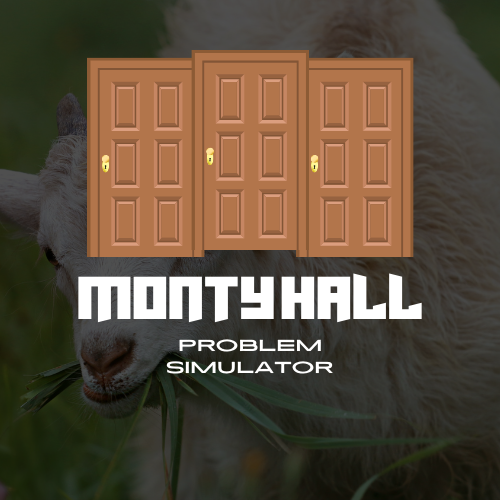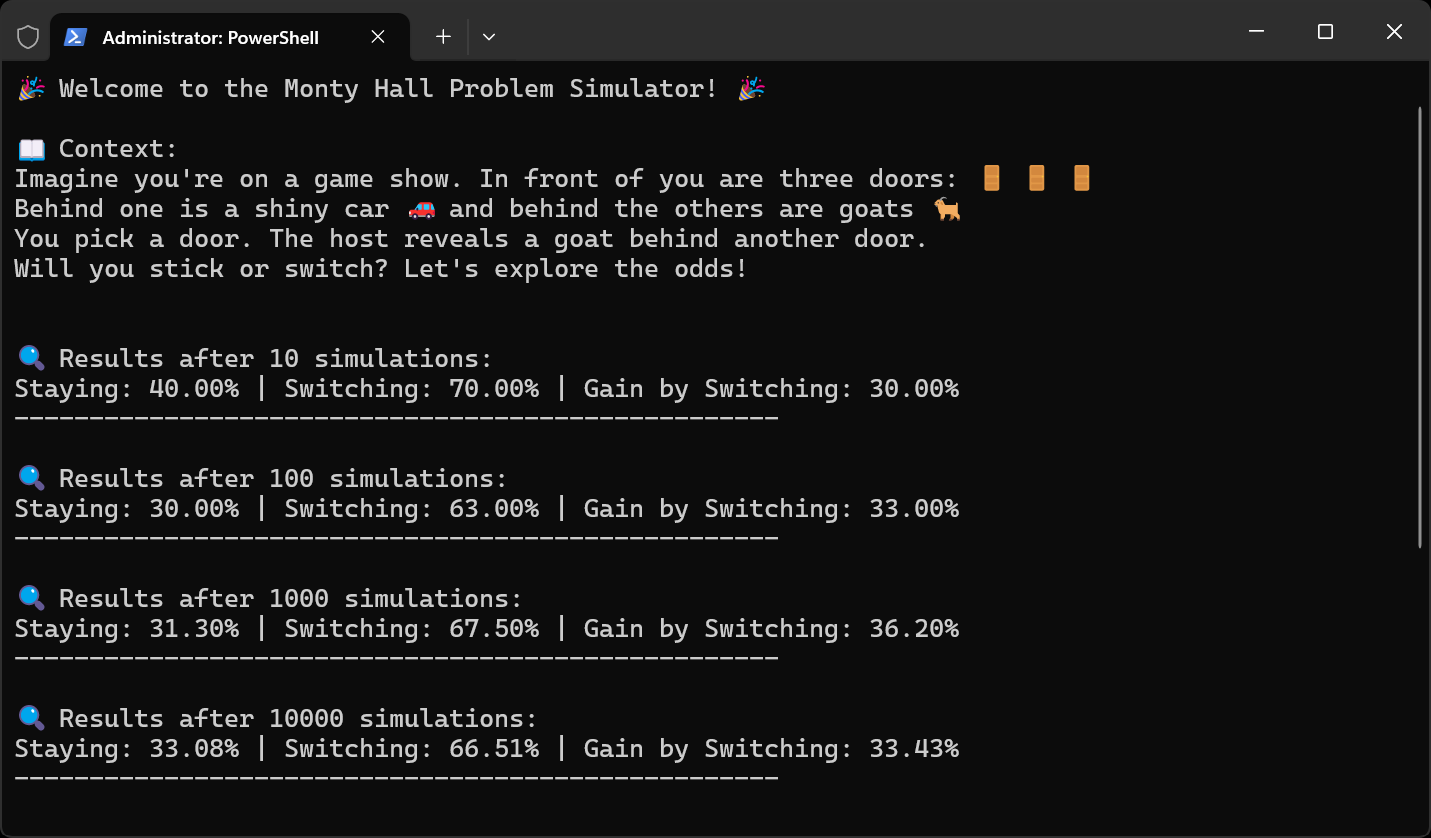
Simulate, analyze, and visualize your chances in the famous Monty Hall paradox.
A Go-powered simulator for the Monty Hall problem with statistical analysis.
Click to collapse/expand
Monty-Hall-Problem-Simulator: A Go-based simulator to explore and visualize the famous Monty Hall paradox.
This simulator was originally developed as part of a personal learning journey to better understand probabilities, paradoxes, and to demonstrate the Monty Hall problem through real simulations — beyond theoretical explanations.
Initially created as a personal experiment, it later became public because I believe others might benefit from having a concrete, hands-on way to see the paradox in action.
⚠️ Note: Although fully functional and optimized, this project remains a personal and educational experiment. It is not a commercial product, but rather a public code archive aimed at educational, academic, or experimental uses.
The project combines secure random generation, statistical analysis, and clean modular Go code, making it a reusable and extendable tool for anyone curious about probabilistic paradoxes, statistics, or Golang.
Feel free to reuse, adapt, or improve it as you wish.
- ✅ Secure and realistic simulations using cryptographically secure randomness (no pseudo-random hacks).
- ✅ Detailed statistical output, including win rate percentages for both "switch" and "stay" strategies.
- ✅ Clean and modular architecture following Go idiomatic practices for easy customization and extensions.
- ✅ Cross-platform pre-built binaries (Linux, Windows, MacOS Intel & ARM64) — ready to use.
We truly appreciate and welcome community involvement. Your contributions, feedback, and suggestions play a crucial role in improving the project for everyone. If you're interested in contributing or have ideas for enhancements, please feel free to open an issue or submit a pull request on our GitHub repository. Every contribution, no matter how big or small, is highly valued and greatly appreciated!
Explore the star history of this project and see how it has evolved over time:
Your support is greatly appreciated. We're grateful for every star! Your backing fuels our passion. ✨
This project is licensed under the GNU Affero General Public License, Version 3.0. For more details, please refer to the LICENSE file in the repository: Read the license on GitHub







